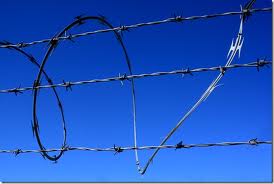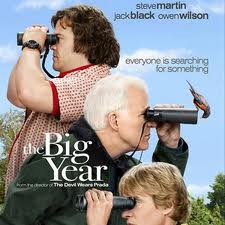As I listened to CNN cover the aspects of the Anthony Wiener story, two questions stuck with me from the various reports:
1. Is Sexting Cheating?
2. Why does his wife stay?
This post will explore the second question: “Why does his wife stay?”
(See the previous post: The Case of Anthony Wiener – Part 1 for “Is Sexting Cheating?”)
Anthony Weiner’s wife, Huma Abedin, has come out in public statements maintaining that she forgives her husband and chooses to stay by his side.  There is much discussion about the shocking reports that he is doing his sexting thing ….AGAIN. There are questions about why his wife would stay. She is an intelligent woman who has gone on record to say she forgives him and he is a good man.
There is much discussion about the shocking reports that he is doing his sexting thing ….AGAIN. There are questions about why his wife would stay. She is an intelligent woman who has gone on record to say she forgives him and he is a good man.
Why does she stay? While I can only speculate about the Weiner-Abedin marriage, or go on reports in the press which report that she forgives him and can’t leave because of their 19-month old child, I can make comment on the couples I see in my practice.
Why would a woman want to stay with a man who betrays in this way? Should someone stay in a marriage when this type of betrayal is involved? There are no easy answers, especially when a child is involved.
I think of three different cases for consideration.
|
CASE 1 When people exhibit type of behavior exhibited by Mr. Weiner, there are negative consequences, and when it is repeated, we must consider the possibility of addiction. If this is the case, healing is possible for people who struggle in this way. Properly diagnosed and treated, people can change, and change can be sustained. One of the hallmarks of living a changed life is humility. Addictive behavior is a very selfish act. Those acting in humility have the capacity to understand their that actions have an effect and impact on others around them. They show remorse. If there is addiction, there is a recovery plan. While there are no guarantees, when one is working a recovery plan there is hope for sustained long-term change. |
|
CASE 2 What if the offending spouse begins a recovery plan and the person has trouble sustaining that recovery process? This presents a dilemma for the other spouse to consider. At first, recovery can be a shaky proposition. “Slips” require an increase in treatment plan and / or the recovery process to create a sustained recovery. Should a spouse stay now? The health of a marital system is sustained by the ability to hold healthy boundaries. If one’s boundaries continue to be crossed, we have to begin to question, Why would one stay? Only the person whose boundaries are continued to be crossed can make a determination of when enough is enough! By setting boundaries we teach others how to treat us. |
The following are examples of boundaries a spouse might choose to set with their spouse who is struggling with addiction:
· “After the infidelity in our marriage, if I find out about the betrayal of infidelity again, I may be forced to file for divorce”.
· “I will not live in a marriage impacted by addiction without a commitment to therapy and an ongoing recovery process.”
· “If you continue the offensive behavior without being accountable to your recovery plan, I may be forced to leave.”

Boundaries are not set to control another – they are set to teach others how we will, or will not tolerate being treated.
|
CASE 3 This leads us to a third consideration. What If one stays in a relationship where there are repeated boundary violations? If an offending spouse is not working a recovery process when working a recovery process is a condition of the marital contract to continue, and the spouse stays in the relationship, the spouse is in essence saying: “it is o.k. for you to cross my boundaries. You can continue your offending behavior and I will stay regardless.” In essence: “I do not mean what I say”. Often the spouse hangs in hoping that change will happen. They stay focused on the hope of change rather than the reality of what is. They might believe the relationship will change when it actually is not changing as evidenced by the repeated boundary violations in this way. A spouse who is betrayed has to be prepared to follow through with the boundaries they set. |

If there are repeated boundary violations in a marriage, I would wonder why one stays. Sometimes this willingness to tolerate intolerable treatment is a result of a condition called Trauma Bonding. Trauma Bonding, a term developed by Patrick Carnes, is the misuse of fear, excitement, sexual feelings, and sexual physiology to entangle another person. Trauma bonding is an unhealthy emotional attachment. People who stay in troubled relationships often were in emotionally or physically abusive relationships growing up. It was their early experience of love growing up. In Al-Anon this is what is referred to “as the comfortable slipper”. It feels familiar, even if it is unhealthy and it was our primary experience of love.
If you find yourself unable to leave a troubled relationship and are trauma bonded, there is help. You don’t have to tolerate intolerable behaviors, you can learn healthy relationship behaviors, you can attempt to make change in your relationship, or if need be, you can learn how to get strong enough to leave.

 Bringing my mind to the present gave me presence of mind. Just for this week I am on task. Just until the leaf and the crack in the asphalt, I can do this. What a gift!
Bringing my mind to the present gave me presence of mind. Just for this week I am on task. Just until the leaf and the crack in the asphalt, I can do this. What a gift!
 Oh my, this was not in the plan! I turned to see that I could no longer see the horizon and could only see what felt like a wall of water coming towards us! We knew that we had to face into the direction of the swell to keep from being toppled. Thankfully we were able to maneuver properly. Along came another large swell that prevented us from seeing the horizon. It was so tall if felt as if it would break over top of us. For me, this was very frightening. I didn’t panic, but I found myself going through a protocol of water safety “what if” scenarios in my head. A third very large swell came along. I thought my husband would better know how to take care of himself than I would if we toppled, but I am sure I could make it, but there was a lot of trepidation!
Oh my, this was not in the plan! I turned to see that I could no longer see the horizon and could only see what felt like a wall of water coming towards us! We knew that we had to face into the direction of the swell to keep from being toppled. Thankfully we were able to maneuver properly. Along came another large swell that prevented us from seeing the horizon. It was so tall if felt as if it would break over top of us. For me, this was very frightening. I didn’t panic, but I found myself going through a protocol of water safety “what if” scenarios in my head. A third very large swell came along. I thought my husband would better know how to take care of himself than I would if we toppled, but I am sure I could make it, but there was a lot of trepidation!
 I watched the movie with interest as conquest, compulsion, and secrecy affected the characters' family relationships and their relationships with one another. Each man in competition with the other tries to hide their true motives from one another. This act of secrecy shapes their relationships, as well. We watch secrecy shape their relations with one another and their primary relationships. And so it is with sex addiction.
I watched the movie with interest as conquest, compulsion, and secrecy affected the characters' family relationships and their relationships with one another. Each man in competition with the other tries to hide their true motives from one another. This act of secrecy shapes their relationships, as well. We watch secrecy shape their relations with one another and their primary relationships. And so it is with sex addiction.

 Life, as they knew or thought it to be, changes in an instant. PTSD from the trauma continues as they lose so much in the transaction of the discovery invasion. The spouse of the addict loses their way, their orientation to life, and the things they thought that were, aren’t. They lose the feelings of specialness to their spouse that was felt in the marriage. It is a betrayal like no other. For the addict there are casualties, as well. The addict is often caught by a surprise attack. They are left to defend the territory of addiction. They are lost in a world of disorientation from the occupation of the addiction and the shame of being discovered. It is a difficult labyrinth for both sides of the war at this point. I have both spouses and addicts contact me in the aftermath of discovery. I can assure you it is painful and the wounds are severe for both soldiers in the opposing armies.
Life, as they knew or thought it to be, changes in an instant. PTSD from the trauma continues as they lose so much in the transaction of the discovery invasion. The spouse of the addict loses their way, their orientation to life, and the things they thought that were, aren’t. They lose the feelings of specialness to their spouse that was felt in the marriage. It is a betrayal like no other. For the addict there are casualties, as well. The addict is often caught by a surprise attack. They are left to defend the territory of addiction. They are lost in a world of disorientation from the occupation of the addiction and the shame of being discovered. It is a difficult labyrinth for both sides of the war at this point. I have both spouses and addicts contact me in the aftermath of discovery. I can assure you it is painful and the wounds are severe for both soldiers in the opposing armies. Disclosure is not just coming clean in confession after the discovery. Disclosure must be planned and executed as carefully as the Normandy Invasion was planned for. To haphazardly just rush in could be disastrous for the campaign of winning the war. Disclosure should be done purposefully with the skill of trained therapists with experience of how to structure disclosure for the maximum chance of success.
Disclosure is not just coming clean in confession after the discovery. Disclosure must be planned and executed as carefully as the Normandy Invasion was planned for. To haphazardly just rush in could be disastrous for the campaign of winning the war. Disclosure should be done purposefully with the skill of trained therapists with experience of how to structure disclosure for the maximum chance of success. 

 One doesn’t do endurance sports without an occasional mishap from a passerby. Similar to the addict, I looked for something to blame. There was no one or no vehicle nearby. I saw a pine cone rolling across the sidewalk and I laughed. I turned around to pick it up. It was a perfectly shaped pine cone. I said to myself….”that’s perfect”, meaning the pine cone…and then I thought, “that’s perfect!” Yes, the NAME of the website I was thinking SexAddictTherapist.com was PERFECT! I ran home in excitement knowing I must investigate if that web domain name was available. I considered it a God-moment. Those, too, are necessary in recovery. The moment of insight when you know you are on the right path and what you must do.
One doesn’t do endurance sports without an occasional mishap from a passerby. Similar to the addict, I looked for something to blame. There was no one or no vehicle nearby. I saw a pine cone rolling across the sidewalk and I laughed. I turned around to pick it up. It was a perfectly shaped pine cone. I said to myself….”that’s perfect”, meaning the pine cone…and then I thought, “that’s perfect!” Yes, the NAME of the website I was thinking SexAddictTherapist.com was PERFECT! I ran home in excitement knowing I must investigate if that web domain name was available. I considered it a God-moment. Those, too, are necessary in recovery. The moment of insight when you know you are on the right path and what you must do.